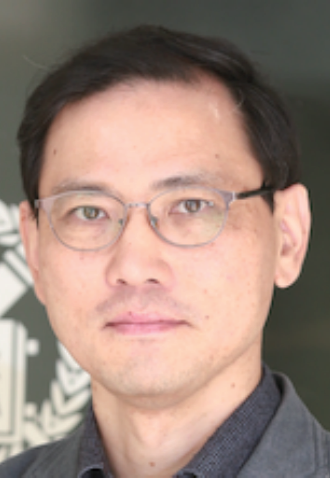Seungwu Han
Departtnent of Materials Science and Engineering, Seoul National University
EXTENDED ABSTRACT: The high accuracy of the density functional theory (DFT) method allows for evaluating free energies at various conditions that are necessary for constructing the phase diagram and identifying crystal structures of unknown compounds. However, computational costs in obtaining entropic contributions and exploring huge configurational spaces are prohibitively expensive with DFT method. Recently, machine-learning potentials successfully demonstrated high efficiency and sufficient accuracy in free energy calculations. In this presentation, using neural-network interatomic potentials, we present recent achievements from our group along this direction. First, we develop crystal structure prediction of completely unknown compounds by employing neural network interatomic potentials as a high-fidelity surrogate model of DFT. Since the crystal structure is unknown, we construct the training set using disordered phases such as liquids and amorphous structures. We confirm that the neural network potentials can rank various metastable structures prop?rly. By combining the neural network potential and evolutionary algorithm, we search the equilibrium structure of various test compounds. We also examine synthesizability of unknown chemical space in ternary metal oxides. Next, we present the construction of archetypal MgO-CaO eutectic phase diagram. The free energies are evaluated by the thermodynamic integration method or semi-grand ensemble methods. The resulting phase boundaries agree very well with the known experimental data.In the second part of the presentation, we will discuss on the application of machine learning potential to the process simulation. Functional and structural materials are fabricated through a series of controlled processes, and digital twins that can predict and analyze these processes are essential in many industries. Traditionally, process simulations have been the realm of continuum methods, but they are facing challenges as materials are engineered to nanoscale features for extreme performances. These challenges can be overcome by bottom-up atomistic approaches that employ molecular dynamics (MD) simulations, but these are highly limited by several factors. On one hand, it is challenging and timeconsuming to develop classical force fields that can describe the chemical reactions during process simulations. On the other hand, the ab initio approach based on density functional theory (DFT) is highly limited in the length and time scale of the simulation. This quagmire is being resolved by recent developments in machine learning potentials, which expedite the development of force fields from DFT data and also allow for large-scale, long-term simulations thanks to linear scaling. In this presentation, I will demonstrate various process simulations that have been successfully carried out within our group, such as wet and dry etching processes in semiconductor devices. This is achieved by employing various techniques that can sample relevant reactions within DFT-MD simulations. To address the time-scale problem directly, we carry out kinetic Monte Carlo simulations in Pt oxidation by cataloguing reaction events on-the-fly. This becomes feasible by combining machine learning potential and exhaustive potential-energy-surface exploration.

Professor Seungwu Han received his B.S. (1993) and M.S. (1995) degrees in Physics from Seoul National University, where he also completed his Ph.D. in 2000. During his graduate studies, he conducted significant research into the theoretical study on the field emission of carbon nanotubes.Post his Ph.D., he served as a postdoctor at the Princeton Materials Institute, Princeton University, USA. He then began his academic career at Ewha Womans University, where he was a Full-time Lecturer, and later Assistant and Associate Professor in the Department of Physics. He moved to Seoul National University in 2009 as an Associate Professor and was promoted to Full Professor in 2013.Dr. Han holds the position of The University of Tokyo Fellow from 2019 and received Byungho Lee Best Lecturer award in 2022.His current research activities are focused on high-throughput automatic calculations for large-scale material screening, machine-learning potential for efficient molecular dynamics simulations, p-type semiconducting oxides for display device applications, catalysts for energy conversion and chemical reactions, and materials modeling for microelectronic devices. Prof. Han's body of work is robust, with over 220 journal papers to his credit, two book chapters, conference proceedings, and Korean patents. His work has been cited over 15,976 times, and he boasts a high H-index of 62. He has successfully supervised 19 graduate students and is currently mentoring 20 Ph.D. candidates.